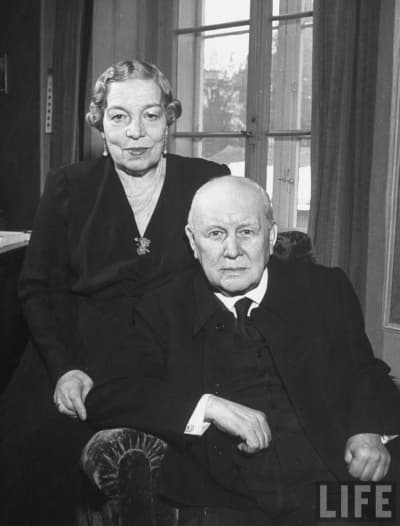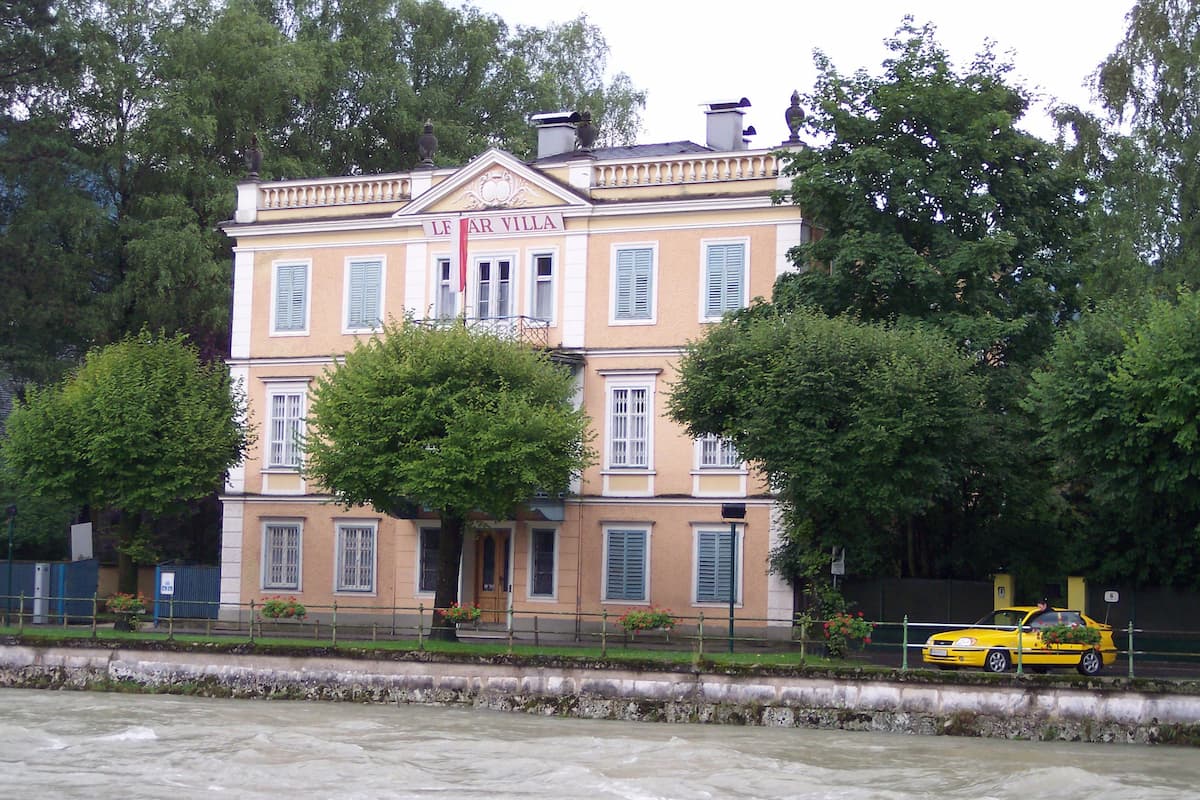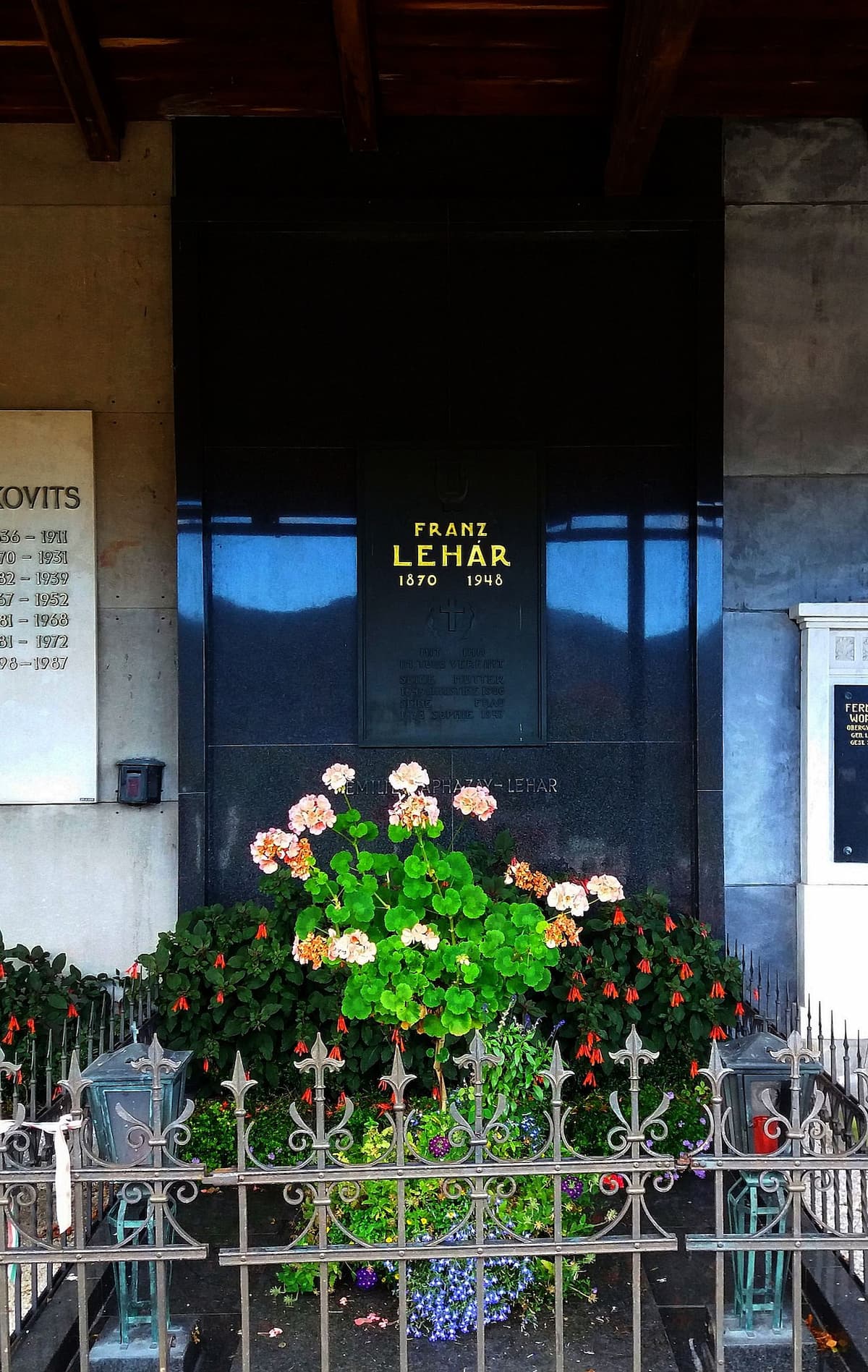With his operetta The Merry Widow, the Austro-Hungarian composer Franz Lehár crafted one of the most popular and enduring works in the genre. In fact, it was the favourite work of Adolf Hitler, who called it “equal to the best operas.” It was rumoured that this was the only piece of music the dictator listened to in the last two years of the war. Lehár was a celebrated superstar and a Roman Catholic, who basically kept a low profile during the war. However, he represented a major headache for the Nazi regime as he habitually used Jewish librettists for his operas, including Viktor Léon and Leo Rosenstein for The Merry Widow.
Franz Lehár: The Merry Widow, “Vilja song”
Political Turmoil

Sophie and Franz Lehár, 1947
Lehár was part of the vibrant cultural milieu in Vienna which included a significant Jewish contingent. And his wife Sophie, née Paschkis, had been Jewish before her conversion to Catholicism upon marriage. Sophie was given the status of honorary Aryan by marriage in 1938, but both were nevertheless subjected to great personal and professional hostilities.
When Lehár and Sophie resided in Bad Ischl, a spa town popular with Austrian royalty during the times of the monarchy, they did so in continual fear of death. “One day we had two men knocking at the door, they were members of the Gestapo,” Lehár remembered. “They demanded that Sophie should go with them, and it took a long telephone call to the Gauleiter before they departed. If I hadn’t happened to be at home, I should never have seen my wife again…”
Franz Lehár: Giuditta (excerpts) (Jana Scharkowskaja, soprano; Thomas Dewald, tenor; Cologne Radio Symphony Orchestra; Helmut Froschauer, cond.)
Health Problems

The Lehár Villa in Bad Ischl, Austria
In 1943, Lehár was in Budapest to rehearse and present a revised version of Gipsy Love. Rehearsals stretched for six weeks, and while he still managed to conduct the premiere, he collapsed shortly thereafter and was rushed to his villa in Bad Ischl. He remained in Ischl for two years, staying in bed for two or three months at the time. Lehár suffered from a whole litany of ailments, including flu, pneumonia, and various forms of colitis. In addition, his vision was reduced by severe clouding, making reading and writing almost impossible. As he wrote, “Still, the doctors’ skill and my own strong will to live have enabled me to survive the difficult days. After an interval of a year and a half, I can again sit at the piano for a little while every day.”
Soldiers from the “Rainbow Division” of the United States Army liberated Bad Ischl, and they went from house to house questioning, checking, and securing. A serviceman reported, “When we came to the villa on the other side of the river, the door was opened by an old gentleman, short in height, with a deathly white face which showed a smile of welcome.” Word quickly got around that the GIs had found the man who wrote The Merry Widow. The doorbell kept ringing and troops approached the famous composer for pictures, autographs, and photographs.
Franz Lehár: Gypsy Love, (excerpts)
Switzerland

The interior of the Lehár Villa
Post-war Vienna revived Strauss and Offenbach operettas, but Lehár remained unmentioned. As such, the couple departed for Switzerland to seek treatment by Zürich doctors. However, when his departure became known to the press, Lehár was subjected to a torrent of abuse, sneers, and threats. The composer was accused of being “cowardly, crafty, and ungrateful,” and Lehár complained, “Not a single friend turned up to defend me. I wouldn’t have thought that all I had achieved in and for Vienna was now forgotten.”
Prior to departing for Switzerland, Sophie Lehár had been diagnosed with a serious heart condition. On 1 September 1947, she died suddenly. On that evening at the hotel, she chatted with her husband and two friends, one of them a doctor, and when she went to the next room a cry was heard. Lehár and the doctor rushed to see her, but it was too late. Lehár was devastated and a friend wrote, “I found an old, sick man, and I knew the melodies which slumbered within him would never again be awakened to life.”
Franz Lehár: Paganini, (excerpts) (Rudolf Schock, tenor; Ursula Schirrmacher, soprano; Melitta Muszely, soprano; Karl-Ernst Mercker, tenor; Gunther Arndt Choir; FFB Orchestra; Werner Schmidt-Boelcke, cond.)
Final Months in Bad Ischl

The grave of Franz Lehár
Lehár returned to Bad Ischl in the summer of 1948 and his health quickly deteriorated. He received blood transfusions from a Viennese specialist, but it was clear that his days on earth were numbered. Lehár kept struggling for several weeks but eventually stopped eating. On the evening of 23rd October, he said, “Now I have done with all earthly things,” and quietly fell into a deep sleep. Franz Lehár died at 3pm on 24 October of heart failure.
Lehár had specified in his will that he wanted to be buried in Bad Ischl, near his mother and beloved Sophie in the family vault. On 30 October a solemn procession moved to the small cemetery, and Lehár had asked for the “Volga-Lied” from The Tsarevich as his funeral song. A friend reported, “they have laid him to rest like a king.” Lehár left no incomplete works, everything he felt worthy of publication had been published during his lifetime.
For more of the best in classical music, sign up for our E-Newsletter
